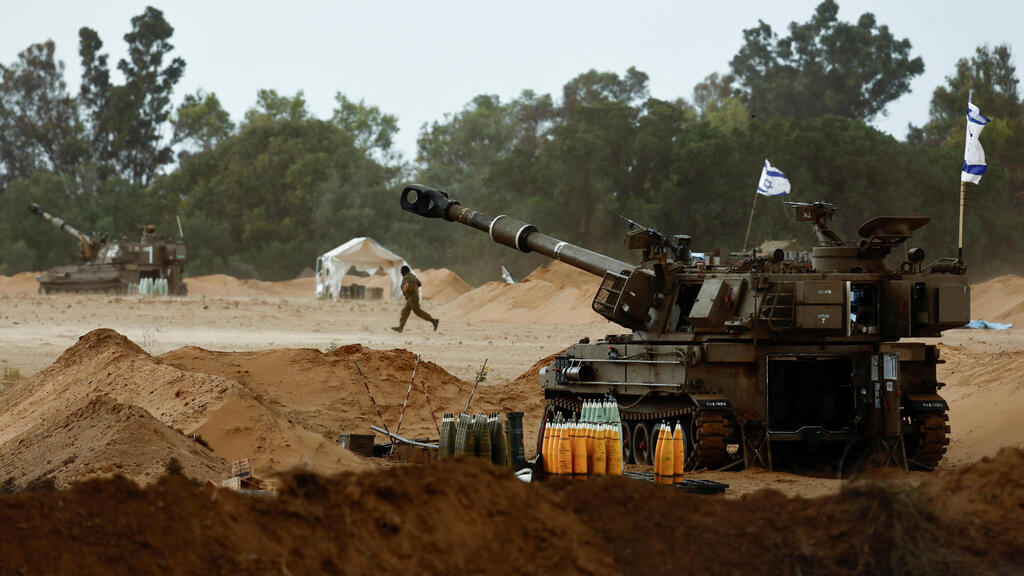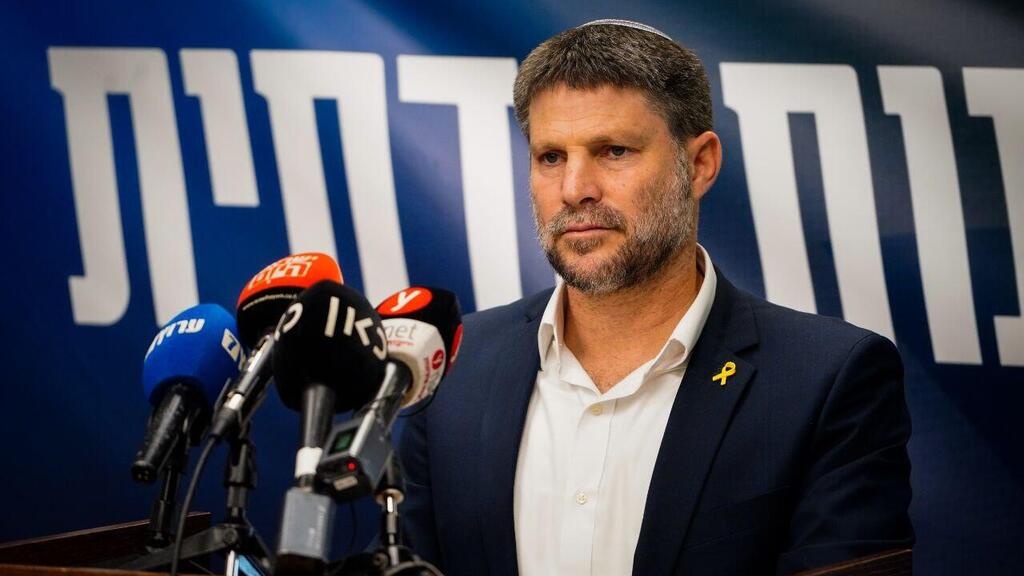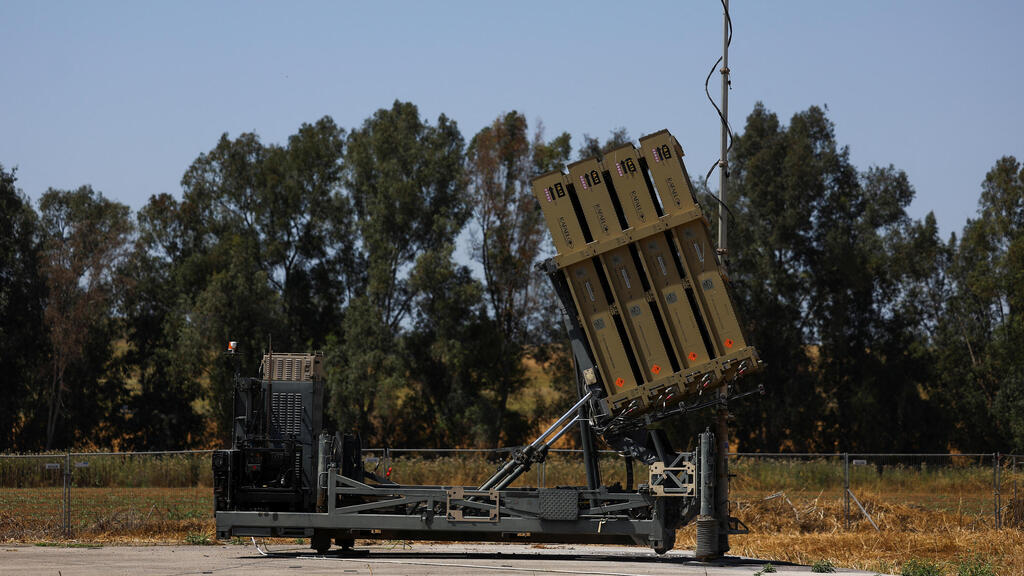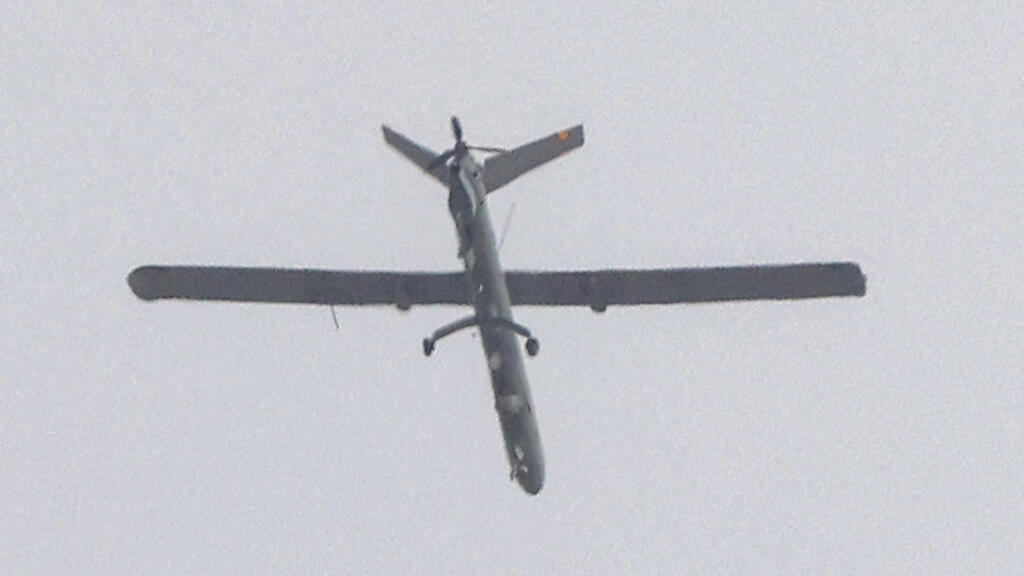Getting your Trinity Audio player ready...
Israel’s dramatic dependence on American military aid in the Gaza war is seen in the annual budget execution report published by the Finance Ministry’s Accountant General. The report indicates that in the fourth quarter of 2023, the Defense Ministry had non-planned contracts totaling 18 billion shekels due to the war.
Of these, about 7.8 billion shekels (43%) were contracts with American suppliers: 6.9 billion shekels from the U.S. military and an additional 932 million shekels from American companies. The remaining 10.2 billion shekels were contracts made with Israeli companies.
Some of these contracts will only be fulfilled in the future, which means that Israel's dependence on the U.S. is expected to continue in the coming years under any scenario. Additionally, the data once again shows how specifically Israel relies on the U.S. itself rather than "the world," therefore reported American threats to halt the sale of military equipment to Israel in case of an uncoordinated Rafah operation, are highly significant.
The disregard of senior Israeli officials in the coalition for American aid, alongside Sunday’s statements by Prime Minister Benjamin Netanyahu that "if we don't defend ourselves, no one will defend us. And if we need to stand alone, we‘ll stand alone" – ring hollow.
The Finance Ministry set the 2023 state budget for the direct security costs of the war at 17 billion shekels. These costs mainly consisted of expenses that weren’t part of contracts, such as calling reservists for duty and military logistics.
However, the Accountant General’s report shows how this sum is partial and doesn’t reflect reality, as the actual cost is billions more expensive. Unlike budget reports, the Accountant General’s report presents a breakdown of open contracts – meaning active acquisition agreements between the state and various suppliers.
A significant portion of these contracts has yet to be completed, meaning that agreements with suppliers were signed in 2023 but the transactions weren’t done, and the entire sum of money has yet to be delivered. So, these are amounts that the military agreed on in 2023 but will pay for in future budgetary years, whether in Israel’s approved 2024 budget or in future state budgets.
How does the breakdown of contracts for what was defined as "unusual acquisitions" in the fourth quarter of 2023 look? About 10.35 billion shekels of these were for various types of ammunition and weaponry.
The Defense Ministry signed four different contracts for "ammunition" – referring mainly to ammunition used by the infantry forces, including artillery shells and tank missiles, light ammunition for troops, and more.
These contracts include local procurement of ammunition totaling 3.06 billion shekels from various industries and 150 million shekels from the Israel Aerospace Industries (IAI), procurements from the U.S. military totaling 2.62 billion shekels, and acquisition of ammunition from an unnamed American company totaling 144 million shekels. The Defense Ministry also procured flares from the U.S. military totaling at 113 million shekels.
When it comes to aerial ammunition, the report distinguishes between "munitions" and "warheads," which are usually purchased separately, with the warheads containing the explosive material while the munitions refer to the guidance systems that the warhead is mounted on.
The Defense Ministry purchased weapon systems totaling at 911 million shekels from local suppliers Rafael Advanced Defense Systems, IAI, and Reshef Technologies, and an additional 2.07 billion shekels from the U.S. military and an unnamed American company. Additionally, warheads purchases totaling one billion shekels from Israeli defense industries and 289 million shekels from the U.S. Air Force.
The fact the majority of the Defense Ministry’s contracts which took place following the outbreak of the war in Gaza were made to purchase ammunition confirms previous reports that the IDF was forced to conduct "ammunition economics" and ration the air and ground attacks to preserve ammunition stocks both for the continuation of the fighting in Gaza and for the scenario of a full-scale war on the northern border.
The increased use of ammunition in the Gaza and Ukraine wars led the world to face a global shortage of various types of ammunition, making it difficult for the IDF and the Defense Ministry to obtain additional stock while driving up prices.
IDF purchasing U.S. ambulances
In addition to ammunition and weaponry, the Defense Ministry also purchased armored vehicles following the war. The report shows a deal worth 267 million shekels with an American company for the purchase of light armored vehicles.
This general description aligns with reports of the purchase of around 60 units of "The Flyer 72" armored vehicle, dubbed "Be’eri" by the IDF after the kibbutz’s massacre on October 7. The American Flyer serves as a substitute for the Humvee in the American Special Forces and is produced by the American defense conglomerate General Dynamics.
Another transaction worth 120 million shekels is the acquisition of 75 Oshkosh JLTV vehicles, which also serve as a replacement for the Humvee. Additionally, the Defense Ministry procured heavy engineering equipment from the U.S. military during the war, worth 340 million shekels based on a contract from 2017, which was expanded. It can be estimated that the deal involves the purchase of D9 bulldozers, some of which will be converted for autonomous driving.
The Defense Ministry also purchased military ambulances worth 139 million shekels from the U.S. military. Another contract includes a purchase from the U.S. military worth 1.19 billion shekels including spare parts.
The breakdown of war contracts also reveals a web of security contracts that aren’t regular, but rather temporary acquisitions: the Defense Ministry made a 228 million shekels contract for leasing missile interception systems, corresponding with a report from half a year ago in Wall Street Journal that reported Israel would lease two Iron Dome batteries from the U.S.
In addition to this contract, the state paid Elbit Systems 161 million shekels for "additional UAV flight hours of (Unmanned Aerial Vehicles)" and a contract worth 184 million shekels with the IAI for logistical support for the Arrow air defense system.
The Defense Ministry also procured night vision devices worth 221 million shekels, with 103 million of them purchased from Elbit Systems and an additional 118 million from an unnamed American company.
Additionally, the Defense Ministry purchased operational helmets for IDF soldiers from an American company for 119 million shekels and medical equipment worth 203 million shekels from the Israeli company Israel Logistic Solutions.
The war also naturally led to an increase in the army's logistical needs. In 2023, the Defense Ministry made contracts for the purchase of gasoline and diesel from the Paz, Delek and Sonol oil companies, totaling about 1.5 billion shekels. Additionally, a contract worth 135 million shekels was made for the purchase of fruits and vegetables.






